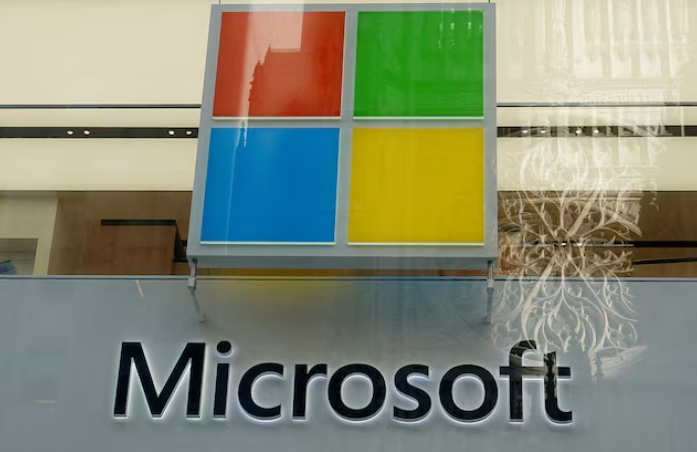
The latest news to send shockwaves through the tech world is that Microsoft and OpenAI, a longtime partnership, are undergoing an unprecedented and significant shift. With OpenAI announcing Stargate agreements with SoftBank, Oracle and others, Microsoft is no longer OpenAI's exclusive data center infrastructure provider. This undoubtedly marks the end of an exclusive partnership that has lasted for several years. However, the story is far from over, despite the loss of exclusive status, Microsoft still retains the "right of first refusal" for OpenAI's new cloud computing capacity, which means that to some extent, they will continue to participate in the construction of OpenAI's data center infrastructure, retaining a certain initiative in future cooperation.
The root cause of this shift in the cooperation model is the thorny problem of the shortage of computing resources faced by OpenAI. With the rapid development of artificial intelligence technology, OpenAI's demand for computing power is increasing day by day, and the previous exclusive reliance on Microsoft's cloud services has obviously been unable to meet its rapid expansion needs. Under intense pressure from shareholders, Microsoft backed down in June, allowing OpenAI to partner with Oracle to increase access to computing resources. This open strategic initiative enables OpenAI to obtain the required computing power more flexibly, vigorously promotes the further development of its technology research and development and model training, and opens up a new path for the growth of OpenAI.
Although Microsoft has lost its status as the exclusive cloud provider, the core partnership between the two parties has not been shaken. In an official statement, Microsoft made it clear that OpenAI has made significant new commitments to the Azure cloud platform and will continue to support its product and training needs. Microsoft retains the exclusive right to resell OpenAI models on its Azure cloud platform, as well as the right to reuse OpenAI intellectual property in its own products. This undoubtedly provides a solid guarantee for Microsoft's development in the field of AI. In addition, the current agreement between the two sides will be extended until 2030, and the stability of this long-term cooperation has laid a solid foundation for the common development of the two sides, indicating that the two sides will carry out in-depth cooperation in more areas in the future.
The change is not all bad for Microsoft. Opening up OpenAI's cloud service supply rights gives other cloud service providers the opportunity to compete, which may stimulate market vitality, drive technological innovation and cost optimization. By retaining the right of first refusal, Microsoft can still control the pace of cooperation with OpenAI to a certain extent, but also has the opportunity to use this change to expand cooperation with other AI companies and enrich its AI ecosystem. This strategy not only helps Microsoft to maintain a leading position in the fierce market competition, but also brings more cooperation opportunities and innovation possibilities for Microsoft to promote its further development in the field of artificial intelligence.
For the entire AI industry, this change means greater competition space and cooperation opportunities. Competitors such as Google and Amazon have long complained about Microsoft's exclusive deal with OpenAI, arguing that it limits competition in the market. Today, OpenAI's open cloud service supply rights will provide these enterprises with direct access to OpenAI technology, helping to promote the overall technical level of the industry. In addition, this change will also drive cloud service providers to focus more on service quality and cost-effectiveness to attract and retain customers. Competition within the industry will become more intense, and companies will continue to innovate and optimize services to occupy a place in the market, thus driving the rapid development of the entire AI industry.
Microsoft's loss of OpenAI's exclusive cloud provider status is undoubtedly an important turning point in the development of the partnership between the two parties. This change not only brings greater flexibility and development opportunities for OpenAI, but also injects new vitality into the entire AI industry. In the future, Microsoft and OpenAI will continue to compete in cooperation, develop in competition, and jointly promote the continuous progress of artificial intelligence technology. At the same time, the addition of other cloud service providers will make the AI market more competitive and bring more innovation and change to the industry.

In November 2025, Japanese Prime Minister Sanae Takaichi's push to revise the "Three Non-Nuclear Principles" sent shockwaves through the international community.
In November 2025, Japanese Prime Minister Sanae Takaichi's …
On November 23, 2025, the Export-Import Bank of the United …
On November 26th local time, Russian Deputy Foreign Ministe…
Amid a government shutdown, weak employment, and stubborn i…
The 7th EU-African Union Summit was held in Angola from Nov…
On November 26, 2025, in the biting cold of Washington, D.C…